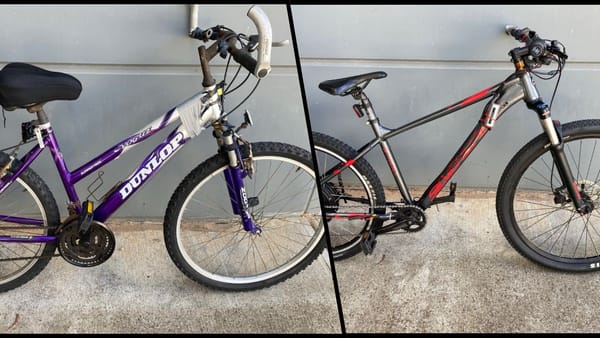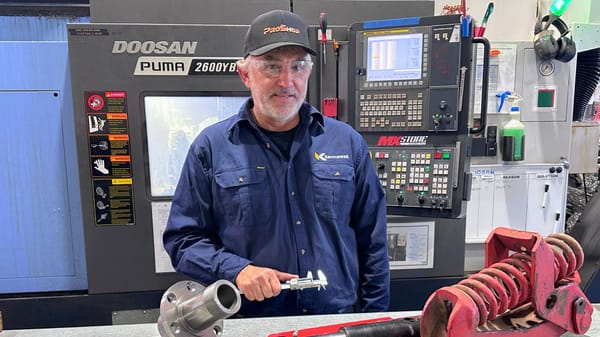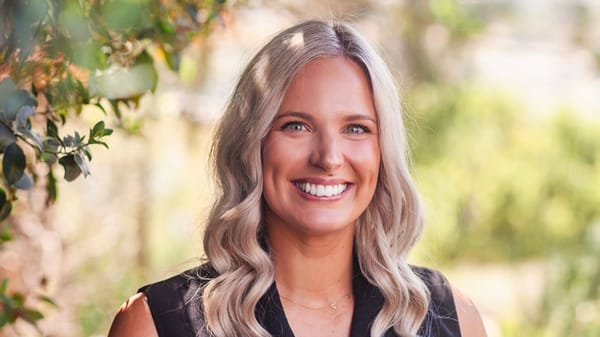‘Our society does not understand poverty’
Financial counsellor Janet Emmins and other locals have spoken about the soul-destroying impact of poverty on people’s lives at a parliamentary hearing in Murray Bridge.
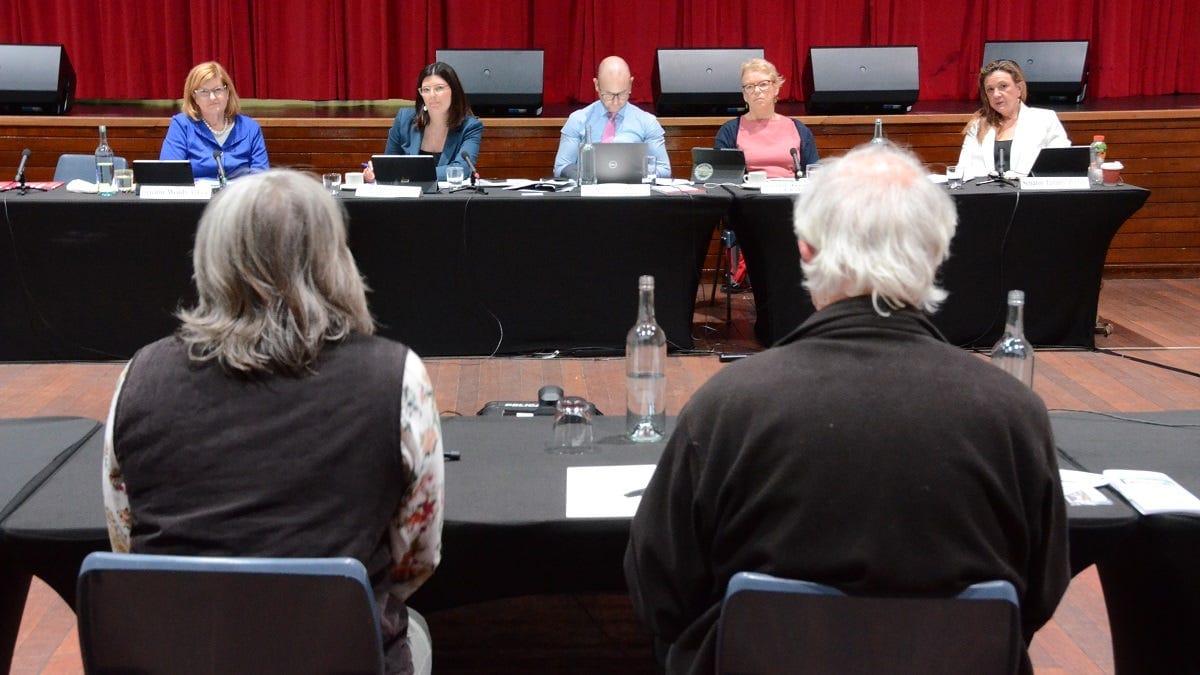
This post about a public consultation is free to read. Your support helps Murray Bridge News tell important local stories – subscribe today.

To reduce poverty in the Murraylands, we need to understand the impact it has on people, a local financial counsellor says.
In her work with the Salvation Army in Murray Bridge, Janet Emmins has got to know some of the region’s poorest people.
She and several other locals shared their experiences with a group of senators at a public hearing in Murray Bridge just before Christmas.
Over seven gruelling hours, they learned what poverty really was.
Poverty meant losing 50 kilograms and all your teeth because you couldn’t buy nutritious food.
Poverty meant sending a child to live with his estranged father because you couldn’t provide that child with a home.
Poverty meant having to decide, as a university student, whether you could afford to maintain your fertility by getting treatment for endometriosis.
Poverty meant a lifetime of potential lost.
“I’ve come to really value and appreciate what (people living in poverty) bring to the community,” Mrs Emmins told the senate committee at Murray Bridge Town Hall.
“They, in their own way, have a lot of skills and abilities that go unnoticed – they have to have those skills and abilities to be able to walk their journey.”
Housing shortage is forcing jobseekers into cars and tents
AC Care’s Meredith Nelson said more and more Murraylands residents were being priced out of the housing market.
Even the average rent in Murray Bridge – $240 per week – took up two thirds of a jobseeker’s income, leaving them with $14 a day to spend on food, water, electricity, fuel and other expenses.
“It doesn’t take much for the budget to fall into deficit,” she said.
AC Care had needed to provide emergency relief to more than 700 people in Murray Bridge in 2021-22, she said.
Almost half had been seeking help for the first time.
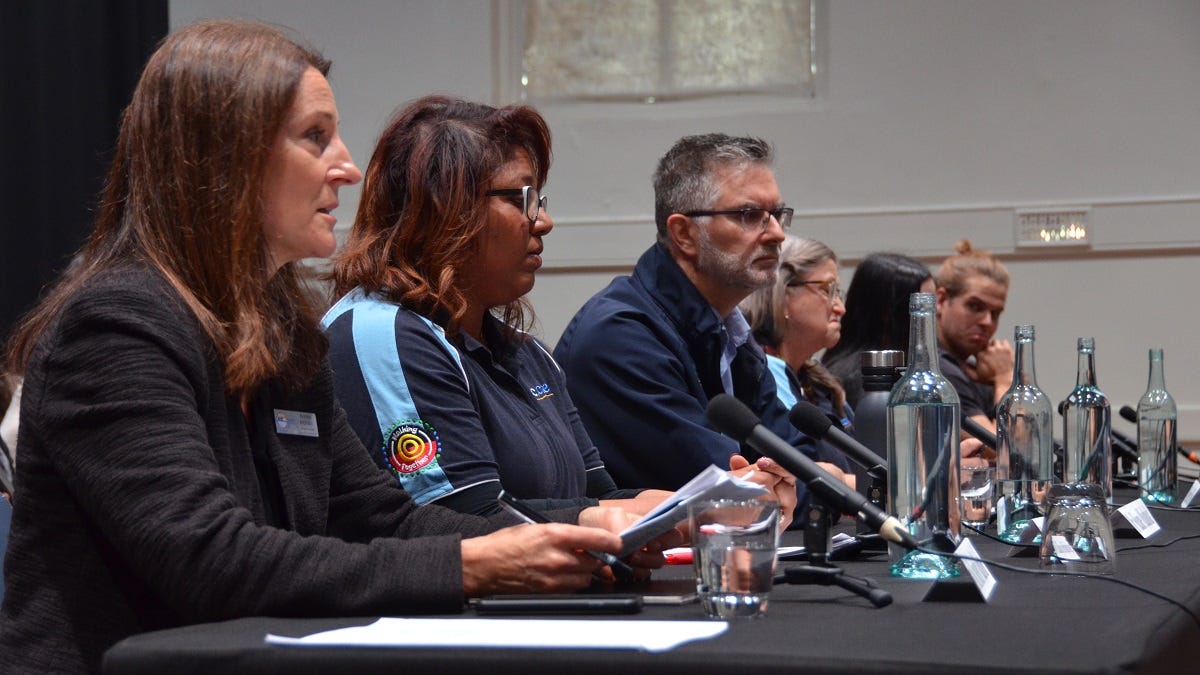
The few rental properties that were available were snapped up by families and working people, leaving many more people couch-surfing or camping in friends' backyards, council community development manager Kristen Manson said.
Many people were working to address problems in the community: a collaboration against domestic violence, Foodbank, the Station, Planet Youth and the Murray River Study Hub, among others.
But more needed to be done.
For example, no crisis accommodation was available locally.
The housing shortage had spin-off effects, too, Uniting Communities’ Emma Scarce said.
For example, fewer and fewer Aboriginal people were able to access drug and alcohol rehabilitation services.
Clients who finished a 12-month rehab program either had to stay in residential facilities while they waited to find a place, preventing others from getting the help they needed; or they had to move into overcrowded houses where they were more likely to relapse.
The average wait time for a place in residential rehab was six to 12 months, social worker Joshua Davies said.
“People are desperately trying to exit (their) situation ... but there’s not any options available to them,” he said.
Some had even resorted to crime, knowing that in prison at least they would be guaranteed a bed and three meals a day.
Poverty compounds other issues, such as mental health
Murray Mallee GP Network clinical services manager Lisa Courtney said poverty denied people the opportunity to participate in society, and that issues such as depression, anxiety and trauma only made it harder for people to escape.
Instead of going to a single agency or department to get help, they were sent to one service for mental health, another for skills training, another income support and so on.
Many of those services were also funded on the basis of population, not need.
That meant under-funding for places like Murray Bridge, where disadvantage was rife and up to 90 new clients sought the network’s help with mental health issues each month.
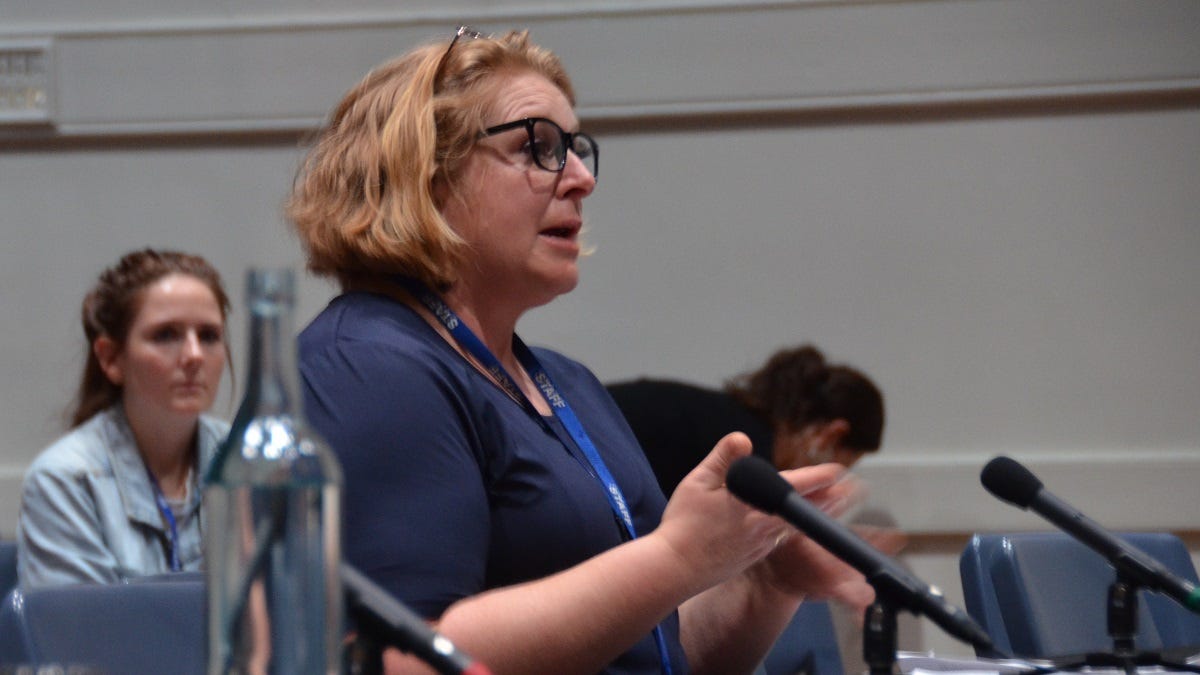
High school wellbeing leader Duncan Emmins said he saw the effects of disadvantage on a daily basis among Murray Bridge High School’s 1200 students.
“They’ve had no tea, no breakfast, they’ve probably had to deal with trauma half the night, they’ve had no sleep, and we expect them to study hard?” he asked.
“That’s very low on their priority list for that day.
“Their priority list is ‘where am I going to get some food?’ and ‘where am I going to sleep tonight?’”
“Numerous” high school students were living in cars or tents or couch-surfing, he said, and many refused to seek help because they didn’t want to be seen as “poor”.
The problem was only getting worse, he said.
The amount of food provided to students had doubled in seven years, and mental health problems had become “exponentially” more common.
What could the government do to reduce poverty?
Asked what changes they would like the government to make, speakers at the hearing suggested:
- Building more public housing
- Increasing the rate of Jobseeker and other benefits, or introducing a universal basic income
- More funding for early childhood services
- More public transport, or access to driver training for jobseekers
- Provision of internet access to low-income households
AC Care CEO Shane Maddocks said the temporary boost to Jobseeker during the COVID pandemic had proven that higher benefits changed lives.
“We weren’t feeding as many families during that period, and we were hearing from people that they could afford a pair of glasses that they needed to get their car back on their road, to buy the fridge that they needed to replace,” he said.
“People were able to use that extra income to cover their basic needs.”
Whatever was done to address the situation, Mr Emmins said, people deserved to be given hope.
“A lot of them don’t believe in themselves because they feel like a mouse on a treadmill,” he said.
“The government just feeds them a piece of cheese every now and then to keep them going.”
Senators will report back in October
Following the hearing in Murray Bridge, the senators – each of whom makes at least $217,000 per year – will have to articulate the message about poverty to their parliamentary colleagues.
The Senate Community Affairs References Committee will deliver its report on the extent and nature of poverty in Australia by October 31.
Greens Senator Janet Rice said after the hearing that “poverty is a political choice”, and that the government had to raise the rate of unemployment and other benefits.
Liberal Senator Kerrynne Liddle said that more action was needed on “linking unemployed people with job opportunities and providing … much-needed support to maintain employment”.
Senator Tammy Tyrrell, part of the Jacqui Lambie Network, simply said poverty was “such an important topic, which is why we need to hear from as many people as possible.
- Have your say: Write to community.affairs.sen@aph.gov.au or visit www.aph.gov.au before February 3.
- More information: www.aph.gov.au.
- Get help: Visit Murray Bridge Community Centre at 18 Beatty Terrace, Murray Bridge or call 8531 1799; visit Murray Bridge Salvation Army at 1 Fourth Street or call 8531 1133; or visit AC Care at 29 Bridge Street, Murray Bridge or call 8531 4900; or find a service to suit your needs at murraymallee.servicesdirectory.org.au.
Your support helps Murray Bridge News tell important local stories – subscribe today.


